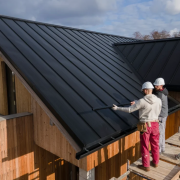Moving to a new home is an exciting experience, but it can also be overwhelming. There are many things to consider, from location to amenities, and the decision on where to move can be daunting. One of the most important factors to consider is the community in which you will be living. The right neighborhood can provide a sense of security, belonging, and pride, so choosing the right one is essential. In this blog post, you will explore eight ways to identify the right neighborhood for you.
When deciding where to move, there are many things to keep in mind. You will want to consider factors such as proximity to work, quality of schools, cost of living, and access to amenities. But one of the most important factors to consider is the community in which you will be living. The right neighborhood can make all the difference in how you feel about your new home.
In an increasingly digital and interconnected world, a strong sense of community is more sought after than ever. This longing for connection is not just about the practical benefits of a supportive neighborhood, but also about being part of something larger than oneself. Today’s society often emphasizes individual success, but many people find that true fulfillment comes from contributing to a community and from the shared experiences that come with it. There is a growing recognition that collective, community-focused living can provide a sense of purpose, improve mental and emotional well-being, and even contribute to longer, healthier lives. This shift towards community-centered living is leading many to prioritize the quality of community life when choosing a place to call ‘home’.
Of course, ‘community’ means different things to different people. Some people prefer to live in a bedroom community so they can commute easily to a nearby town or city. Others like to live in the center of the action and be part of life directly around them.
Here’s how you can identify what community means to you, and whether a neighborhood is going to meet your needs.
1. Research the Neighborhood
Before you commit to a neighborhood, take the time to research it. Look into crime rates, property values, and demographic information. Check out local community forums, social media groups, and neighborhood associations to get a sense of what life is like there. Research the amenities available in the neighborhood and get a sense of the local culture.
2. Consider your Lifestyle
Consider your lifestyle when choosing a neighborhood. If you are looking for a quiet, family-friendly community, look for an area with good schools and parks. If you are single and looking for a vibrant neighborhood, look for an area with a lively nightlife. If you prefer a more artistic community, look for neighborhoods with galleries, museums, and theatres.
3. Visit the Neighborhood
The best way to get a sense of a neighborhood is to visit it. Take a walk through the community, visit local cafes and restaurants, and check out the local shops. Observe the community and the people who live there. Consider if you feel comfortable and safe in the neighborhood.
4. Attend Community Events
One of the best ways to get to know a community is to attend events. Look for neighborhood events such as festivals, concerts, and farmers’ markets. This will give you a chance to meet locals and see the community in action. It will also give you a sense of the community’s culture and values.
5. Talk to Locals
Talk to locals when you are visiting the neighborhood. Ask them about their experience living there. Ask about the area’s strengths and weaknesses. They can provide valuable insights into what it’s like to live there.
6. Consider the Commute
Consider your commute when choosing a neighborhood. Make sure it is convenient and not too time-consuming. If you prefer to walk or bike to work, look for neighborhoods with good pedestrian and bike paths. If you rely on public transportation, look for neighborhoods with good transit options.
7. Consider the Cost of Living
Consider the cost of living when choosing a neighborhood. Look for affordability and accessibility to amenities. You don’t want to live in a neighborhood that is too expensive, but you also don’t want to sacrifice quality of life.
8. Trust your Gut
Trust your instincts when choosing a neighborhood. If something doesn’t feel right, trust that feeling. You want to live in a neighborhood that feels like home. You want to feel comfortable, safe, and happy in your new neighborhood.
If you value community, here’s a recap of some of the things you should look out for when searching for a neighborhood and a home.
- Community Events: Regular events that bring people together, such as street fairs, farmers markets, or holiday celebrations, signal a strong and active community spirit.
- Community Spaces: Look for the availability of public spaces like parks, community centers
- Engagement of Local Government: Notice if the local government is proactive and responsive to the community’s needs. This often manifests in well-maintained infrastructure, public services, and regular communication with residents.
- Neighborhood Watch or Safety Programs: These initiatives indicate a community that is invested in the safety and well-being of its residents.
- Active Local Businesses: A flourishing local economy with unique shops, restaurants, and services contributes to a vibrant community.
- Schools and Libraries: Quality educational institutions and libraries suggest a community that values education and lifelong learning.
- Walkability and Public Transportation: Easy access to necessities like grocery stores, schools, and work via walking or public transit can foster a stronger sense of community as residents are more likely to interact with each other.
- Resident Involvement: High levels of resident participation in local groups or organizations, from PTA meetings to neighborhood clean-ups, signal a strong community spirit.
Choosing the right neighborhood is essential when moving to a new home. The right neighborhood can provide a sense of security, belonging, and pride, so taking the time to choose the right one is essential. By researching the neighborhood, considering your lifestyle, visiting the neighborhood, attending community events, talking to locals, considering your commute, considering the cost of living, and trusting your gut, you can identify the right neighborhood for you. Remember, you want to feel comfortable, safe, and happy in your new neighborhood, so don’t rush the decision. Take your time, do your research, and choose wisely.













Comments